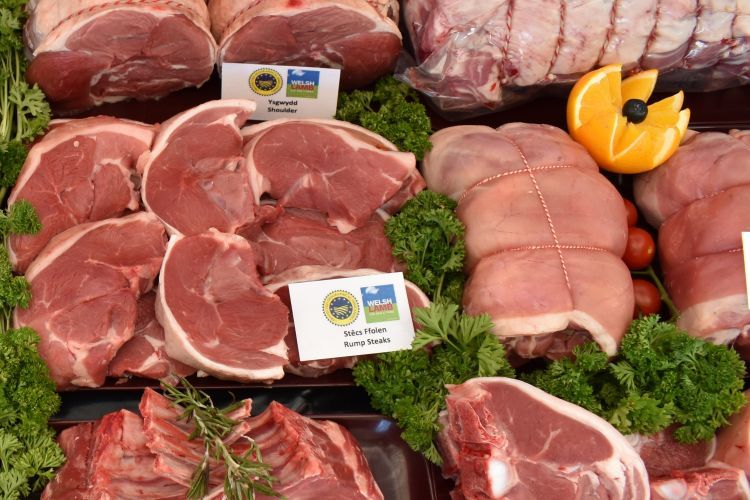
The US has the potential to be a key export market for British lamb despite it being one of the less popular meats there, industry experts have said.
According to the commercial manager at Dunbia, one of Europe's leading food companies, the biggest opportunity lies in the size of the population – with over 300 million people, the majority of whom are meat eaters.
But Tom Coles said he recognised that growing lamb exports was going to be challenging due to its high price and competition from already established importers.
Lamb is expensive compared to other proteins, and other countries such as Australia and New Zealand are already established in the US market.
“The biggest challenge I see is reaching those discerning customers in the premium food service sector in the hope that the popularity of lamb will continue to grow,” Mr Coles said.
“But the UK has one of the most sustainable production systems in the world, using our natural resources such as grass, sunshine and plenty of rain to produce highly nutritious, succulent and tasty lamb.
"It is through showcasing these key qualities that opportunities will start to open," he explained.
Mr Cole’s comments were made at the Annual Meat Conference in Dallas this week, where he joined AHDB and Hybu Cig Cymru – Meat Promotion Wales (HCC) to showcase UK lamb to more than 1,500 visitors, mostly Americans.
James Hutcheson, commercial director for ABP, another who attended the event, said he was pleased with the willingness of US importers to engage with UK processors.
“We’re just about to conclude our USDA approval as a business and the next step will be putting a commercial aspect to that work and exporting to the US.
"This mission gave us a good focal point to achieve this," Mr Hutcheson explained.
“One of the most welcome surprises has been the general willingness to engage from the US importers.
"There is an active interest in British meat and the most pleasant surprise has been the level of engagement they have afforded us as a newcomer to the market.”
But Mr Hutchinson said that he also recognised the challenges of exporting to the US, as it was a 'mature market' for the UK's southern hemisphere competitors.
"There’s a willingness and understanding of buying an Australian or New Zealand cut of lamb because its traditional to the market and we haven’t had access to it previously," he said.
“But the US has a low level of domestic production and consumers who are looking for a taste and flavour experience that is beyond the everyday meal occasion.
“We have seen there is a good acceptance of lamb, they like the flavour profile, particularly of UK lamb, and we see that as an opportunity.
"There’s others in the marketplace and that could be perceived as a threat but there is an understanding that all meal occasions are open to us and there are opportunities for everyone."
